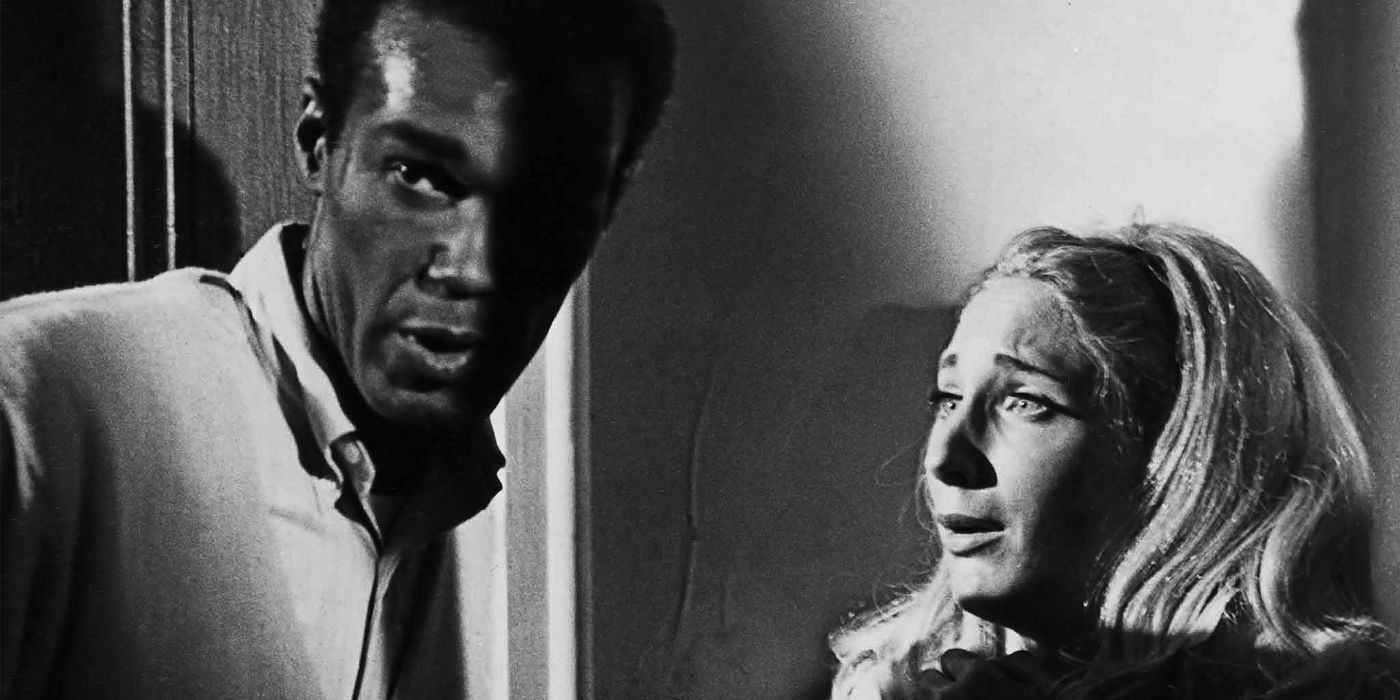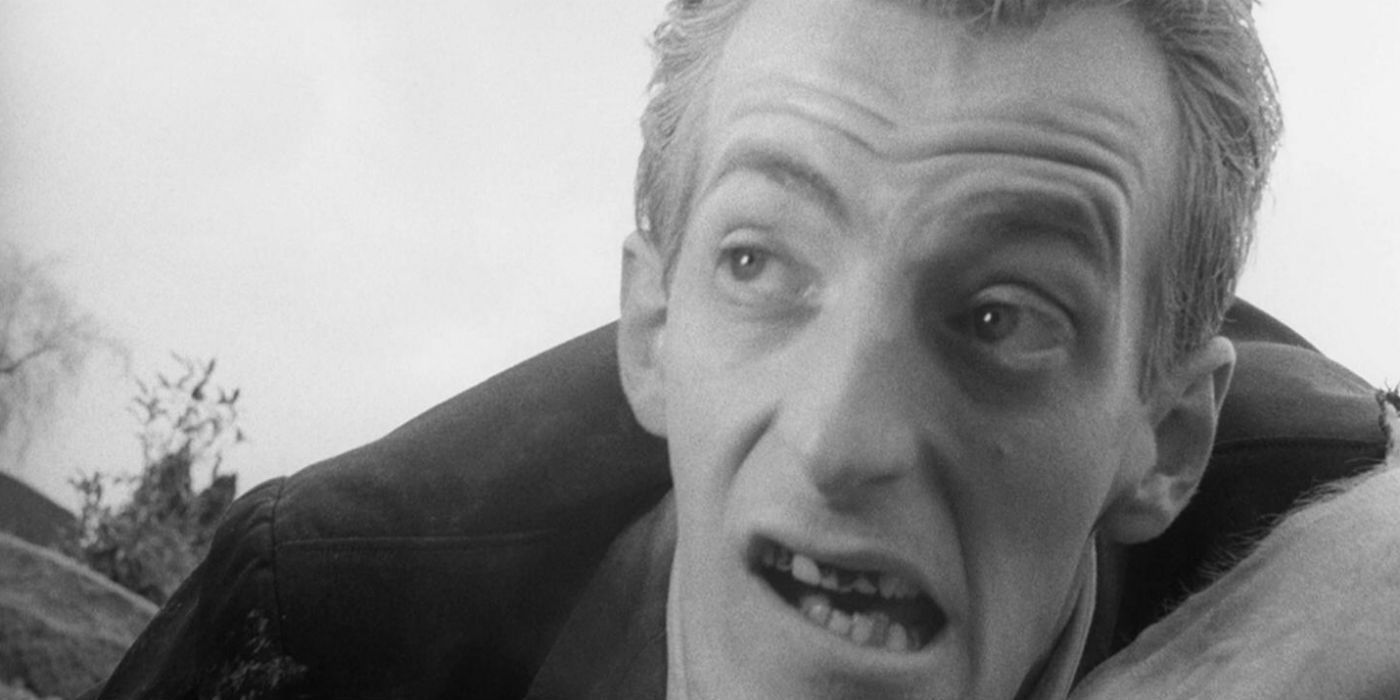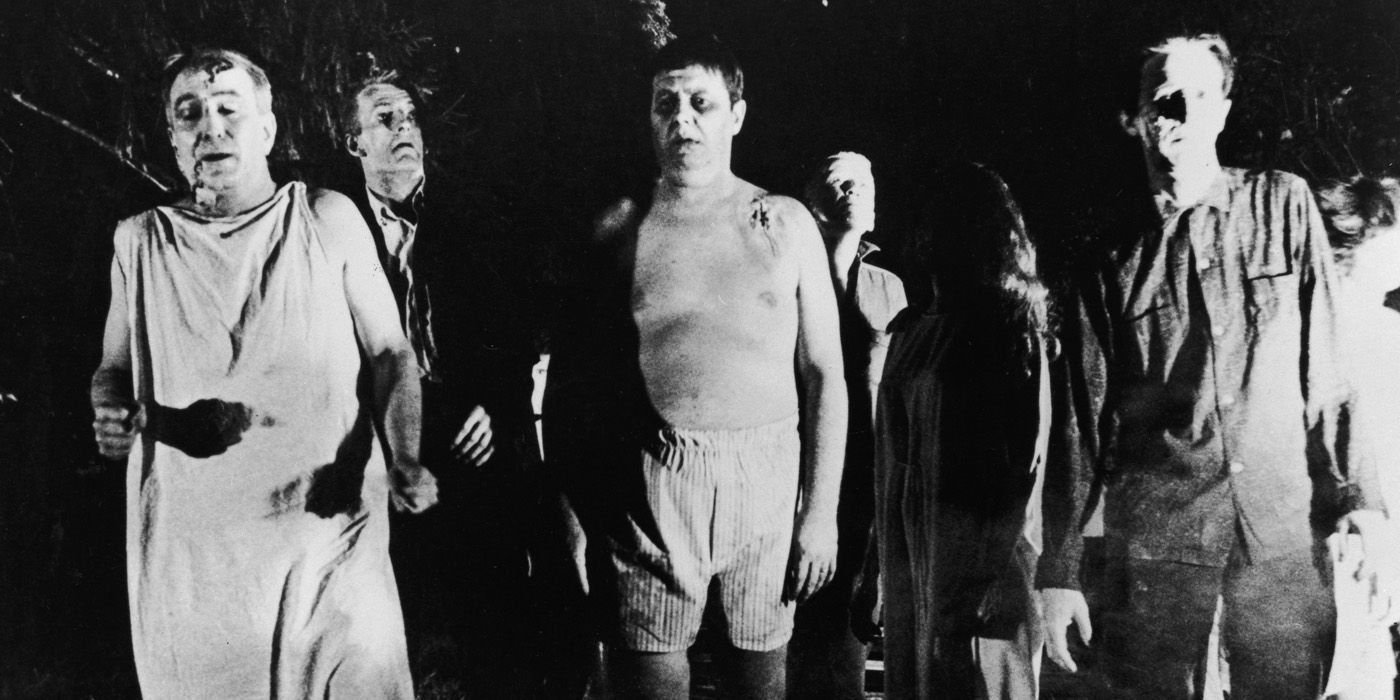Despite being part of folklore and history for centuries, zombies made their first big-screen appearance in George A. Romero's 1968 indie horror film Night of the Living Dead. That's a groundbreaking enough title in itself, as the zombie movie has now exploded as a whole subgenre of horror. However, the classic film has another huge element in its themes that makes it very relevant today.
Night of the Living Dead starts with brother and sister Barbra and Johnny visiting their late father's grave. While there, Barbra is attacked by a slow, pale man, in tattered clothes. He unfortunately kills Johnny, but Barbra gets away and finds solace in an abandoned farmhouse. A man named Ben arrives, and acts as the hero of the movie, and they discover other refugees living in the cellar. Together they reinforce the house, try to fend off the zombies (called "ghouls" in this film), and attempt to escape and survive.
The main thing that people refer to as really standing out about this film in the context of the year it was made, is that it has a Black male lead. Ben, the hero of the movie, was played by unknown at the time theatre actor Duane Jones. The rest of the cast is white, and it was a very controversial casting choice to have a Black man play the hero amongst a cast of all white people. Romero has always claimed that this choice was not a statement by any means, but rather that Jones simply had the best audition and won the role fairly. Intentional or not, this casting puts many of the events of the movie in an entirely different context and there's no doubt that it would be an entirely different film had Ben been played by someone who was white.
Though the film never once mentions race at all, never even referring to Ben as a Black man, subtle actions done and lines said by the characters who interact with him make implications. When Barbra first meets Ben, she's completely horrified to the point of insanity. Of course, this is completely due to the fact that she's just been attacked by a horde of zombies and witnessed the murder of her brother. In looking at the context of the time period the film was made though, there are also some heavy implications of racism. In the 1960s, and still today, there is a strong stereotype being pushed that Black men were a danger, and specifically a danger to white women. Watching it now and knowing that, the viewer can't help but feel like the character is also aware of that stereotype, and that she probably believes it. The way she is so fearful when she meets him is kind of stark and off-putting.
This is also shown in Ben's interactions with the people living in the cellar, particularly the character of Harry Cooper. Harry is an older man, he's white, and he doesn't trust Ben's judgment. Despite Ben being confident in what would be best and having a solid plan, Harry doesn't want to trust him and he doesn't really give a reason why. If Ben had been played by a white actor, this would hardly be notable as it can be a common plot point in these kinds of films. However, again, looking at the context of the era and through the lens of someone with knowledge of racism and microaggressions, it puts things like this in an entirely different light.
The starkest and most shocking thing about Night of the Living Dead, especially in the context of racism, has got to be its highly controversial ending. At the end of the movie, Ben is the lone survivor of the group. After hiding out in the cellar all night, he hears the police coming. They're shooting down the zombies and in turn, that makes him think its safe to come out and that they've come to help him. Unfortunately, they mistake him for a zombie, he is shot and killed, and his body is burnt with the rest of the zombies they'd taken down. It's a very bleak and upsetting ending, and viewing it with the eyes of someone who lived through 2020 makes it hard to think of it as anything but a metaphor for police violence, especially against Black men.
There are other elements of the film that make it very relevant to today's world. Seeing a virus take over the world and watching people argue about what the best way to handle it is very relatable in today's age. But with how much racism, microaggressions, and police brutality have been the biggest social justice topics of the last few years, watching Night of the Living Dead feels like it could have been made in 2021 in almost the exact same way, and hit just as hard.
It's hard to believe that all of these implications could come unintentionally, simply because the best man for the job happened to be Black, and it's even harder to think that given that the year this film was released was the culmination of the 60's civil rights movement. Despite the intentions, Night of the Living Dead remains an incredibly impactful and thought-provoking film, that anyone interested in the relevant issues should watch.



